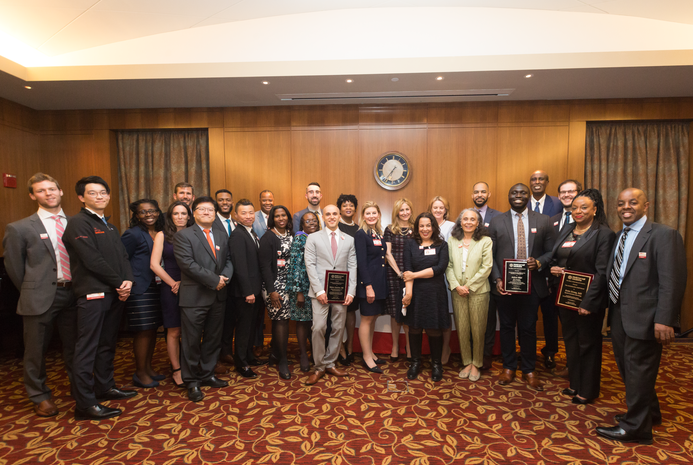In recognition of its outstanding continued commitment to diversity and inclusion, Weill Cornell Medicine has been awarded the Health Professions Higher Education Excellence in Diversity (HEED) Award by INSIGHT Into Diversity magazine for the second year in a row.
INSIGHT Into Diversity is the largest and oldest diversity-focused publication in higher education. Weill Cornell Medicine is among 43 health professional schools and centers to win this year’s award, which the magazine will highlight in its December issue.
“We are honored to be recognized for the breadth of our diversity program and our sustained commitment to important initiatives,” said Dr. Said Ibrahim, the inaugural senior associate dean for diversity and inclusion at Weill Cornell Medicine. “Our program encourages diversity and inclusion at all levels of the institution, from our student body and faculty to our leadership.”
Notable diversity and inclusion initiatives over the last year advanced the strategic vision of Dr. Augustine M.K. Choi, the Stephen and Suzanne Weiss Dean of Weill Cornell Medicine, who elevated diversity as a crucial pillar of the institution’s mission. Among them is the expansion of Weill Cornell Medicine’s Office of Diversity and Inclusion by creating the role of senior associate dean, which Dr. Ibrahim has held since January. In addition, last April marked the second annual Diversity Week, which featured more than 40 activities, from grand rounds to workshops to panel discussions, aimed at highlighting scholarship and projects designed to increase diversity and reduce disparities in healthcare.
Weill Cornell Medicine also earned two prestigious grants from the National Institutes of Health (NIH) in 2019 to build on that momentum. A five-year, $1.34 million award from the National Institute on Minority Health and Health Disparities, is funding the new Weill Cornell Career Advancement for Research in Health Equity (CARE) program, which will mentor and train an increasingly diverse and growing number of graduate-level students who are dedicated to closing gaps in health disparities and improving global health. The second award, a five-year, $2.4 million grant from the National Institute of General Medical Sciences, is funding the Weill Cornell Initiative to Maximize Student Development. The initiative aims to increase the number of doctoral students from underrepresented backgrounds who are trained in conducting exceptional research and enhance their success.
Augmenting these programs is Weill Cornell Medicine’s Diversity Center of Excellence, funded by a $2.7 million grant from the Health Resources and Services Administration that Weill Cornell Medicine received in 2018.
The 2019 HEED Award also recognizes Weill Cornell Medicine’s ongoing commitment to diversity and inclusion. The Travelers Summer Research Fellowship Program, for example, launched 50 years ago and continues to provide premedical students from groups historically underrepresented in medicine with up-close views of the field, aiming to increase the number of minority physicians in the workforce. “The track record for this initiative is exceptional,” Dr. Ibrahim said. “More than 90 percent of these students have graduated from medical school. Some are now deans of medical schools and one is a director of an NIH institute.”
“Our goal is to ensure that everyone feels included, respected and welcome, no matter their background,” Dr. Ibrahim said. “We are proud that other institutions see Weill Cornell Medicine as a champion for diversity and inclusion and are happy to share our experiences with them.”

